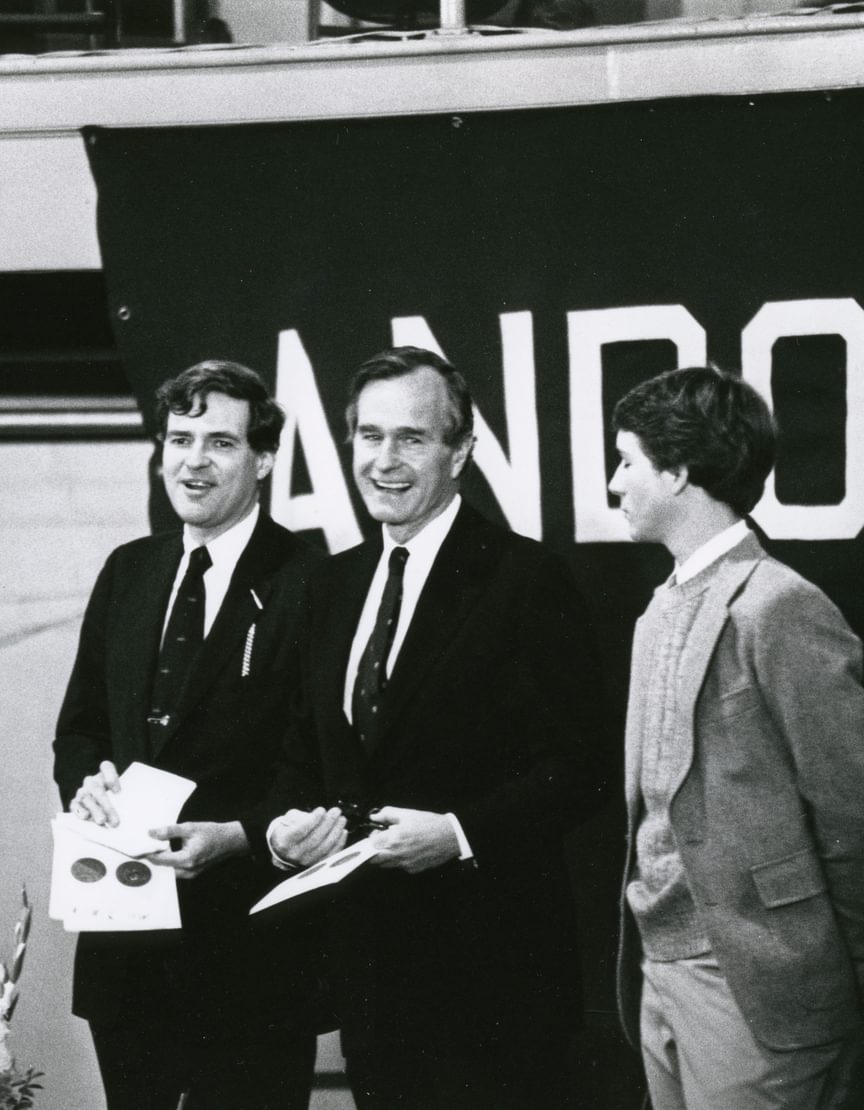
December 05, 2024
On Leadership
From Andover to the White Houseby Jean Becker, Former Chief of Staff to President George H.W. Bush
My editor encouraged me to write a book about the life lessons we all can learn from President Bush ’42, P’64, ’71, ’75. He did, after all, leave us a blueprint on how to lead a life well-lived.
He would tell you that these lessons came from a variety of sources, beginning with his parents, Prescott and Dorothy Bush. But a close second would be the years he spent at the place he simply called Andover. As he told the students when he visited campus as president in 1989:
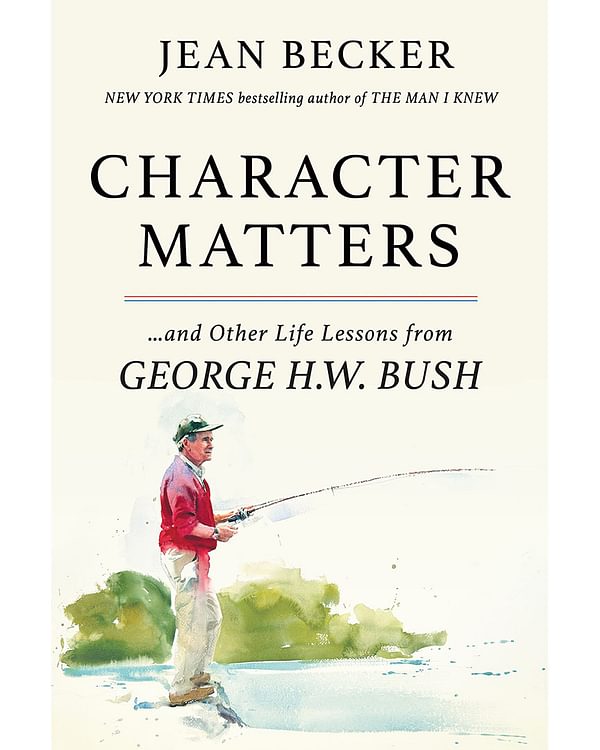
“I loved my years here. They did, indeed, teach the great and real business of living. And even now its lessons of honesty, selflessness, faith in God—well, they enrich every day of our lives.”
President Bush took those life lessons and turned them into a great American story. To help me tell those stories, I reached out to the people who knew him best: colleagues, friends, family, staffers. As I read their narratives, a clear picture emerged. A man who was courageous, decisive, humble, kind, and wise. A man who taught us that character really does matter.
Here, I’d like to share with you several of those defining traits in action—with extended excerpts from my book Character Matters: And Other Life Lessons from George H.W. Bush.
Foreword
I never met a man who had a better understanding of himself, or of his role on the world stage, than President George H.W. Bush. He was simply comfortable in his own shoes. The president knew who he was, both his strengths and weaknesses, a trait that gave him wisdom to make the right and often courageous decisions.
Such a moment occurred on November 9, 1989, the day East Germans took sledgehammers to the Berlin Wall that had divided them from the West for twenty-eight years. As the end of the Cold War appeared closer than ever, the time for jubilation seemed appropriate. Why not celebrate? After all, military expenditures had cost the United States an estimated $8 trillion since the end of World War II, and almost 100,000 Americans died during the Korean and Vietnam Wars.
But the president refused to dance on the ruins of that wall, even when goaded.
“You don’t seem elated,” one reporter asked hours after the wall had started to fall.
I’m elated, the president deadpanned, never smiling during a ten-minute press availability that day in the Oval Office. I’m just not an emotional kind of guy.
In truth, President Bush was elated as were all of us in the White House. It was a thrilling moment. Upon learning of the history-shaking development in Berlin, I quickly concluded a meeting at the State Department with a toast to this historic moment and then dashed over to the Oval Office to meet with the president and National Security Advisor Brent Scowcroft before the press was invited in.
Though upbeat, the president was wary. He wanted to avoid a boastful act that hardliners in the Soviet Union might misconstrue as arrogant triumphalism. Chest-thumping, he worried, could hinder future negotiations with our longtime rivals in Moscow. Worse, it might spark a violent response like the one that had occurred earlier that year at Tiananmen Square in China.
Instead, the president’s self-awareness allowed him to demonstrate heroic restraint. Although criticized by some at home for refusing to take a victory lap, he was able to move forward with even more dramatic victories, including the reunification of Germany as a member of the North Atlantic Treaty Organization; the first reduction of nuclear arms by the United States and the Soviet Union; and the eventual peaceful conclusion to the Cold War.
The summer after the Berlin Wall fell, another critical moment arose. On August 2, 1990, Iraqi strongman Saddam Hussein sent his troops into neighboring Kuwait. Three days later, the president resolutely responded: This will not stand, this aggression against Kuwait.
By then, he had already started to mount international opposition. Within hours after the invasion, President Bush had convinced the United Nations Security Council to unanimously condemn the heinous act. Four days later, the Security Council imposed sanctions. The president also ordered US military forces to the region.
In November, however, Iraq’s troops still remained in Kuwait, and it was evident that the sanctions alone would not get the job done. A more forceful response would be needed to end this stalemate and liberate Kuwait.
Across the Atlantic Ocean, British Prime Minister Margaret Thatcher was encouraging an end of talks and the start of military action. She opposed seeking another United Nations Security Council resolution, one that would allow for military action if Saddam did not pull his troops out of Kuwait. Thatcher didn’t believe that such permission was needed, and she feared seeking it risked rejection. “Oh George!” she told him. “Let’s just go do it!”
The president was willing to go it alone had the situation warranted it. But he understood the serious implications of attacking a member state of the United Nations to settle what then was a regional dispute.
His was the right way forward. With support of the Soviet Union, which had formerly been a strong ally of Iraq, the Security Council set a January 15 deadline for Iraq to withdraw from Kuwait and empowered other nations to use “all necessary means” to force Iraq out of Kuwait after the deadline. When congressional approval soon followed, the president had both domestic and foreign support.
The rest is history. The United States lead the largest international coalition since the end of World War II to liberate Kuwait in forty-two days. Once again, the president’s wise decision to forgo hubris had paid off.
George H.W. Bush got a healthy dose of self-awareness from his mother, Dorothy Walker Bush, who constantly reminded him about the consequences of his actions. She lectured him not to gloat. She was more concerned about how his baseball team at Yale University did than his individual performance. Don’t act like you know an answer to a problem, she advised, go out and find a solution. With her voice always in his mind, he led a life focused on job performance rather than self-aggrandizement. It is one of the many character traits that made him a fine human being as well as a great leader.
Sadly today, modesty and mindfulness have become vanishing virtues as braggadocio and pomposity too often rule the day. And so I am glad that Jean Becker has collected stories from those who knew President Bush and weaved them together in her book, Character Matters: And Other Life Lessons from George H.W. Bush. Her wonderful book is a reminder that the Boy Scout qualities of loyalty, kindness, truthfulness, and bravery are not antiquated vestiges of the past. They remain critical components of a successful human being.
After reading this book, people will understand why I am confident that history will remember George H.W. Bush as the best one-term president in American history, and one of the very best presidents of all time.
I bless the day, all those many years ago, when I met this wise and honorable gentleman. And I bless the day the American people elected him president to safely guide us through one of the most dramatic and dangerous periods to ever confront our great nation.
James A. Baker III
Secretary of State
1989–1992
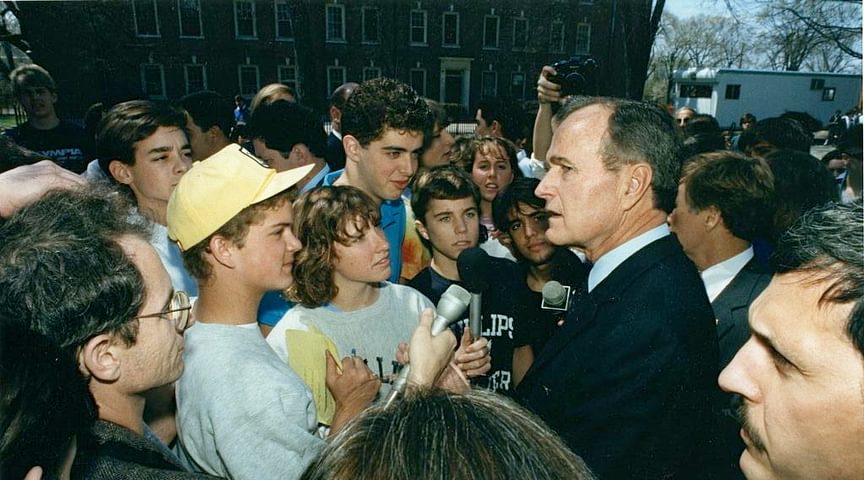
Chapter 1: What Makes a Leader?
Character
An essay by former Secretary of State Condoleezza Rice:
I was the young Soviet specialist for President Bush when the extraordinary events of 1989–1991 took place. I was well known in academic circles but not in government ones. I was thirty-four years old.
Imagine my surprise at the Malta Summit when the president called me over to introduce me to Gorbachev. He put his hand on my shoulder, turned to Gorbachev and said:
This is my Soviet advisor, Condoleezza Rice. She is a professor at Stanford University. She tells me everything I know about the Soviet Union.
Gorbachev mumbled something in Russian like, “I hope she knows a lot.”
But of course the president’s comment wasn’t really meant for Gorbachev. It was meant for all of those people standing around—including US and Soviet government officials who were twice my age. I was a young, black woman in whom the president was investing great trust and confidence at a critically important time in his presidency. I was grateful that I never had to worry that I might somehow be discounted by others.
There are often questions about how people who look different are treated. We talk about inclusion and empowerment. The very best empowerment that you can give to a young person is to let it be known that you trust them and that everyone else had better do so too.
This was a great act of mentorship for which I will always be grateful. And it allowed me to do an even better job for the president, fully empowered by him. And it was pure George H.W. Bush—understated, elegant, and yet a powerful signal.
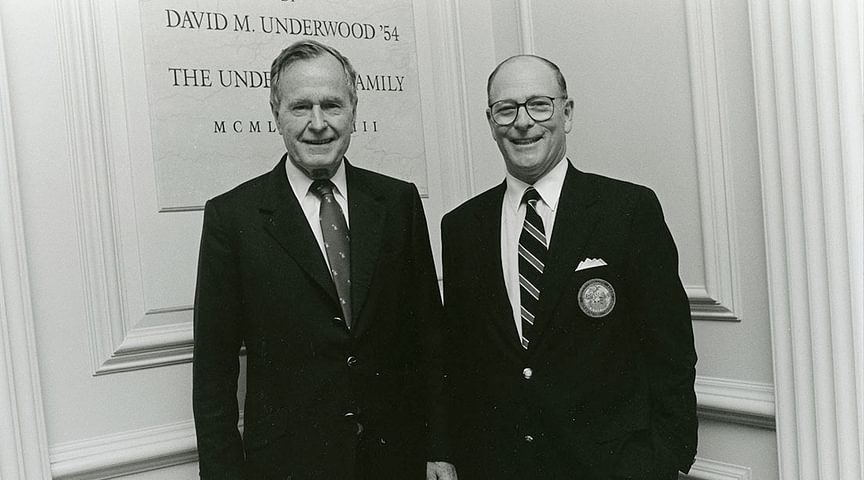
Chapter 2: When the Tough Get Going
Courage
President Bush was chairman of the Republican National Committee during the Watergate scandal that ended Richard Nixon’s presidency. Here are excerpts from a letter he wrote to his four sons in the midst of the tumult. I took out the specifics of the scandal and skipped ahead to the lessons he wanted his sons to learn from Watergate:
July 23, 1974
Dear Lads,
We are living in “the best of times and the worst of times.”
You can sort out our blessings as a family. We have a close family; we have a lot of love around. You guys come home (and this sure is a blessing for Mum and me). We’ve got enough things. If we get sick, we can get well, probably, or at least we can afford to pay the doctor and the schools.
More blessings – you guys know no prejudice. You judge people on their worth. You give your grandmother and your parents a lot of happiness. You will do well in a world full of opportunity. Our country gives us a whale of a lot, and so we are privileged people in a privileged country. We are in the best of times.
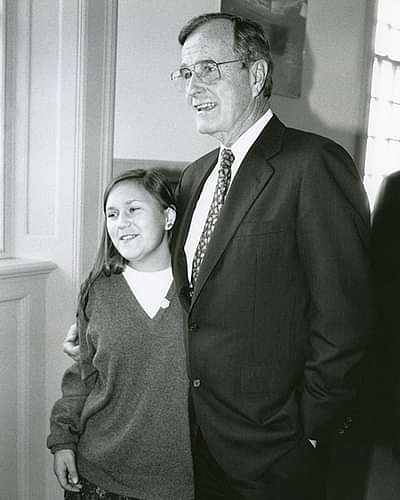
My Dad felt strongly the firm obligation to put something into the system. He felt compelled to give, to be involved and to lead – and that brings me to the worst of times. I mean the part about Watergate and the abysmal amorality it connotes. You must know my inner feelings on this. Because of my job and because of my past associations with the President, it might well be that you don’t know how I feel.
… It’s important because as Dad helped inculcate into us a sense of public service, I’d like you boys to save some time in your lives for cranking something back in. It occurred to me your own idealism might be diminished if you felt your Dad condoned the excesses of men you knew to have been his friends or associates.
Where to begin – The President first. He is enormously complicated. He is capable of great kindness. When Dad was dying of cancer, I was leaving the Oval Office one day, having conferred on some UN matter, and I lagged behind to mention this to the President. His response was full of kindness and caring. He tried then to phone and wish Dad well. …
You should know that I continue to respect the President for his enormous accomplishments and for some personal things too.
But you must know that I have been disappointed and disillusioned by much that has been revealed about the man from Watergate tapes and other sources. …
I shall stop with this gratuitous advice. Listen to your conscience. Don’t be afraid not to join the mob – if you feel inside it’s wrong.
Don’t confuse being ‘soft’ with seeing the other guy’s point of view.
In judging your President, give him the enormous credit he’s due for substantive achievements. Try to understand the ‘why’ of the National Security concern; but understand too that the power accompanied by arrogance is very dangerous. It’s particularly dangerous when men with no real experience have it – for they can abuse our great institutions.
Avoid self-righteously turning on a friend, but have your friendship mean enough that you would be willing to share with your friend your judgment.
Don’t assign away your judgment to achieve power.
These have been a tough 18 months. I feel battered and disillusioned. I feel betrayed in a sense by those who did wrong and tracked corruption and institutional subversion into that beautiful White House. In trying to build Party, I feel like the guy in charge of the Titanic boiler room – one damn shock after another….
Civility will return to Washington eventually. The excesses condoned by the press will give way to reason and fair play. Personalities will change and our system will have proved that it works – more slowly than some would want – less efficiently than some would decree – but it works and gives us – even in adversity – great stability.
I expect it has not been easy for you to have your Dad be head of the RNC at this time. I know your peers must put you in funny positions at times by little words in jest that don’t seem funny or by saying things that hurt you because of your family loyalty.
I can’t wait to see you all in August. I’m still family champ in backgammon.
Devotedly,
Dad
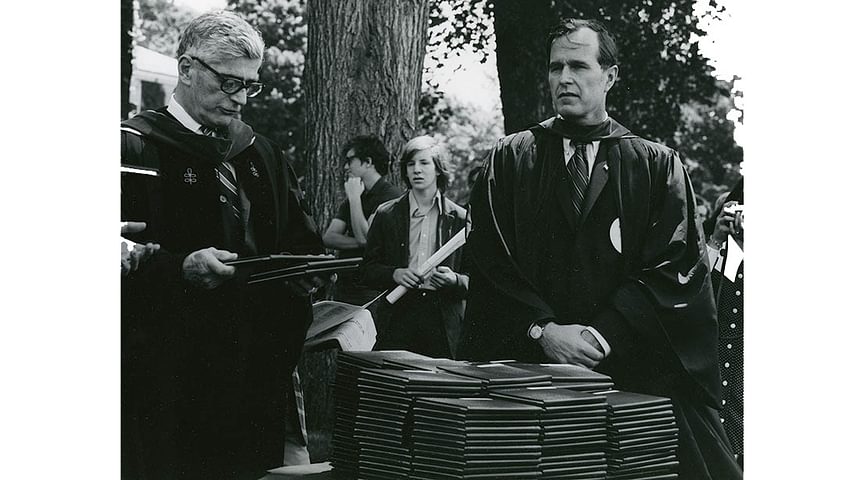
Chapter 3: Just Do It
Decisiveness
Excerpts from an essay by Dick Cheney, former Vice President and Secretary of Defense under George H.W. Bush:
President George H.W. Bush held many titles in a lifetime of service, and he reflected honor on every one of them. His sense of duty was uncompromising, yet he carried himself with gentle ease and without pretense or self-regard. I count it as a great privilege of my life to have known President Bush and to have served in his cabinet as Secretary of Defense.
During his time in the White House, he was tested repeatedly. No one could have predicted the magnitude of historic events that would occur on his watch–the liberation of Panama, the disintegration of the Soviet empire, the collapse of the Berlin Wall, the defense of Saudi Arabia and the liberation of Kuwait in Desert Shield and Desert Storm. President Bush was more than equal to the challenges, managing these unprecedented global events with calmness and clear thinking, and emerging as one of the most respected statesmen of his era.
The nation was fortunate that George H.W. Bush was our President when we faced our first major crisis of the post-Cold War era–the invasion of Kuwait. From the earliest days of the crisis, he refused to ignore or pander to aggression. His clarity of purpose focused the world on the need for action. He was a tremendous leader. His wisdom had seen us through changes more significant than any of us could have imagined.
If you were to go out and design a president to be commander-in-chief in a crisis like Desert Storm, you would have designed someone like George H.W. Bush. His ability to match that historic moment was developed from his years of experience as a combat pilot in World II, a member of Congress, ambassador to the United Nations, U.S. liaison to China, director of the CIA, and as vice president. His knowledge and judgment gave him the foresight to know early on that facing this challenge was going to be a combined political, diplomatic, and military operation.
When I first met President Bush in 1969, little did I know he would later play such a large role in my life and in the life of our country. He was a president who welcomed responsibility, kept his nerve, stood behind his team, and brought out the best in all of us. He left a legacy of public service and character that will stand down the ages. It was easy to feel loyalty and affection for him because he was such a thoroughly admirable and decent man. He had no illusions about politics or life, but there wasn’t a trace of cynicism in him and he embodied the traits and characteristics that all Americans should aspire to.
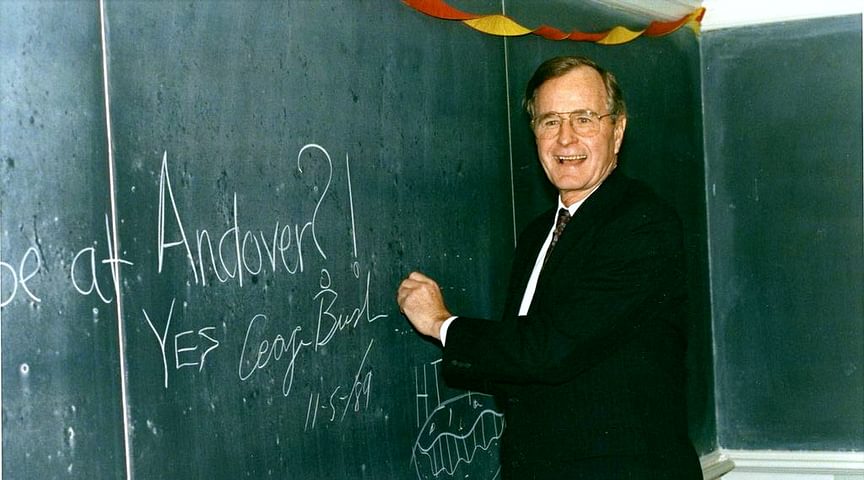
Chapter 4: The Boss
Loyalty
An essay written by Julie Cooke, Director of Projects for First Lady Barbara Bush:
I am a better person for having been in George H.W. Bush’s orbit for thirty-five plus years. I couldn’t help but be influenced by his kindness, his sense of joy, his humanity, and his values of loyalty, faith, and service.
As vice president, he halted his motorcade in a driving snowstorm to give a ride to a lonely stranger struggling in the snow on Massachusetts Avenue in Washington, DC.
A month after losing the 1992 election, he invited comedian Dana Carvey—who became famous for imitating the president on “Saturday Night Live”—to come to the White House to cheer our down-in-the-dumps staff.
Knowing of the cancer treatment for the child of one of his Secret Service agents, he shaved his head off in solidarity with the little boy who had lost all his hair.
I learned to pursue music more fully by seeing President Bush delight in the music of The Oak Ridge Boys and George Dvorsky among so many others.
Watching him skydive out of an airplane and drive his beloved boat like a bat out of hell off the Maine coast reminded me of the value of having fun and living fully.
And knowing of his generosity for thousands and thousands of people in need, and his deep love and pride for his family, each day prompts me to try to think more of others than myself.
President Bush—and of course, Mrs. Bush too—are daily voices in my ear: Did I do something good today? Did I take myself too seriously? Did I laugh? Have I given more than I have received?
I will be forever grateful for those lessons by the example of a great man.
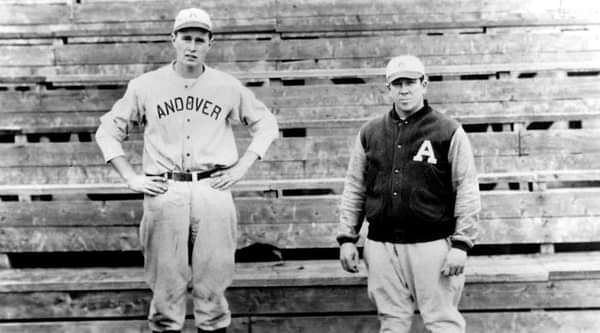
Chapter 5: Family and Friends First
Heart
An essay by a granddaughter, Ashley Bush LeFevre:
The men in my family are not afraid to cry.
I’ve watched my dad, Neil, completely break down over an emotional episode of Touched by an Angel (or pretty much any toast to he gives to someone he loves). My brother, Pierce, lost it at both my sister’s and my wedding. My uncle George famously sheds tears on the national stage from time to time.
And then there’s my grandfather—Gampy, the original crier. The one who showed them—all of us—how to feel these intense emotions life throws at us. You don’t sweep it under the rug to look more powerful, more in control, more effective. Instead, you embrace the sadness, the joy, the heartbreak, the tears.
Ten years ago, at one of our favorite Tex-Mex restaurants, I was asking Gampy about his life, posing questions like: “Who was your best friend growing up?” He’d either respond right away or direct me to Ganny. My grandmother was Gampy’s historian, remembering the smallest details of his life—of their life.
But one question hit harder. I asked my grandfather: “You’ve lived such an incredible life, is there a memorable event that stands out among the others?”
I thought it was a no-brainer: the day he was elected President of the United States! Instead, he sat in silence for a long beat. I was getting ready to ask Ganny what hers was when I realized my grandfather was crying. He was no longer sitting at that table, but deep in thought about someone, something. He finally looked up at me, tried unsuccessfully to compose himself, and then through tears recounted the harrowing day he lost two of his crew members during World War II.
I remember the waitstaff at the restaurant being alarmed, and quickly forgoing the water service. Gampy was eighty-eight years old when I was quizzing him about his extraordinary life, but the memories of his twenty-year-old self were so vivid, so fresh. The heartbreak so real.
Not a single day passes where I don’t think about those two men who lost their lives too early.
Gampy was a young Navy pilot when his aircraft was hit by enemy fire. Both of his crew members, Lieutenant Junior Grade William White and Radioman Second Class John Delaney, did not survive. It was an emotional touchstone that undoubtedly shaped the rest of his life. And instead of trying to forget that horrifying incident, Gampy made sure he thought about it every single day.
To witness a man who has lived such a powerful and extraordinary life be so vulnerable and grieve so publicly was such a testament to the kind of leader he chose to be: compassionate, thoughtful, resilient. By example, Gampy encouraged all of us to live deeply, to feel everything, and to not be afraid when the tears start rolling.
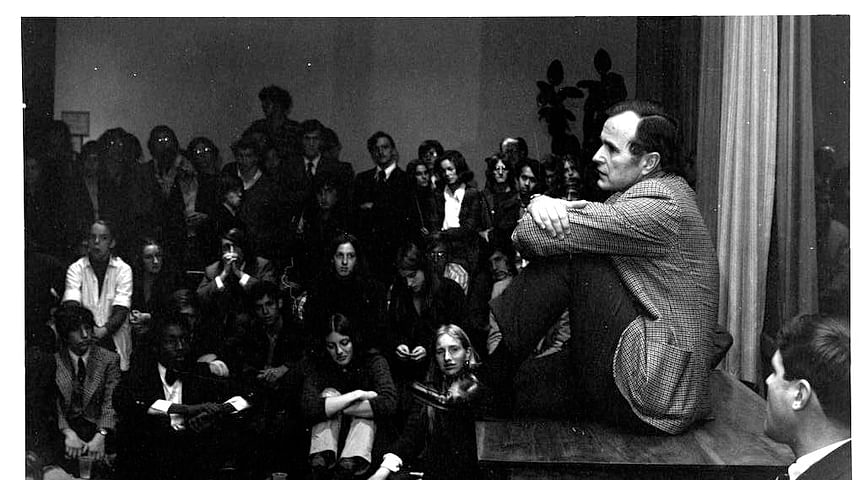
Chapter 6: Here is My Advice
Wisdom
In 2003, President Bush’s friend Henry O. Dormann, Chairman and Editor-in-Chief of LEADERS magazine, asked him to write a piece answering this question: “What is the greatest challenge you have had to overcome in your life?”
Instead of talking about his greatest challenge, President Bush decided to give the readers some of his rare advice. His answer was classic George H.W. Bush – simple but yet profound.
1. Don’t get down when your life takes a bad turn. Out of adversity comes challenge and often success.
2. Don’t blame others for your setbacks.
3. When things go well, always give credit to others.
4. Don’t talk all the time. Listen to your friends and mentors and learn from them.
5. Don’t brag about yourself. Let others point out your virtues, your strong points.
6. Give someone else a hand. When a friend is hurting, show that friend you care.
7. Nobody likes an overbearing big shot.
8. As you succeed, be kind to people. Thank those who help you along the way.
9. Don’t be afraid to shed a tear when your heart is broken because a friend is hurting.
10. Say your prayers!!
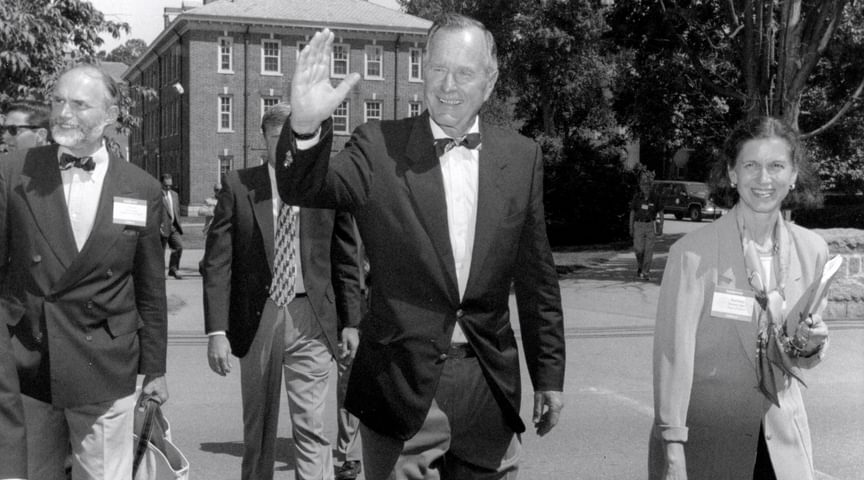
Chapter 7: A New Beginning
Faith
An essay by son Neil Bush:
My father has always been my hero. The guy that treated everyone with respect, that enjoyed life “its own self,” a guy who lifted others in so many ways.
While Mom was the disciplinarian, Dad didn’t need to use words. His leadership in government, business, and family was largely through the example he set. And that was true to the very end of his life.
I’ve observed with both my mother and father that as we age, the filters drop and one’s true character shines through. In Mom’s case, she became a bit more direct in expressing opinions, her sometimes biting humor popping out from time to time, and her deep love and mama bear commitment to family intensified.
As for Dad, no matter how challenging the health issue of the moment might have been, his natural tendency to lean into daily interactions with love became more evident. In his healthier stages of aging, he would write handwritten notes to console friends or celebrate successes. These notes are treasured by the recipients. As a wheelchair-bound former president, he was always thoughtful to linger in restaurants or public events with people who were dying to have a photo. He knew that simple gestures would fill hearts with happiness.
As Dad aged and was nearing the end, he became less verbal. After bending down to kiss him while saying “I love you,” he would inevitably utter, love you more. When asked how he was feeling or how he was doing, he’d give a thumbs up. When sharing good news, he’d smile; when sharing news of concern to the family, he would give an empathetic frown. It was a blessing to be around a man so loving.
It was a blessing to live across the street from my parents during the latter years of their lives. Maria and I were able to spend a lot of time reading to them, doing puzzles with Mom, sharing news of the day, gossiping about family and friends, and watching Law and Order.
On November 30th, 2018, the day of Dad’s passing, we witnessed the soul of a beautiful human transition. In that last day, as he did all his life, my father set a great example for leaving this earthly life with dignity, embracing the core values that were truly important: Faith, family, and friends.
Houston family members gathered that day and most of the extended family was reached by phone to have a last word. The strength he received from his loving family was palpable.
Dad’s closest friend, Jim Baker and his wife Susan, were present throughout the day. They had visited with Dad often over the days and months leading to his passing. To see the Bakers at Dad’s bedside on that final day drove home the importance of friendships in living a fuller life.
Also there was Jean Becker and Evan Sisley, loyal staff members who fell deeply into the friend category and whose presence in Dad’s life brought him comfort and joy.
Dad’s faith certainly was evident that day, a faith reinforced by the Rev. Russ Levenson, who visited mom and Dad frequently, prayed with and for them, and was such a reassuring messenger of their faith. Russ’s prayers and peaceful presence during the last moments was perfect for a guy whose quiet faith was deeply inculcated into his being.
What lessons did we learn from the example that my father set? From his life we learned to show gratitude, sing the praises of others, count your blessings, put yourself in the other guy’s shoes, spread goodwill and joy through authentic interactions, be kind and gracious, live a life of dignity, honor, and patriotism, and leave the world a better place.
And on the last day we could see the importance of cultivating a loving family and close friends, while living your faith. George H.W. Bush’s life was a blessing to me and to many, many others who were influenced by the example he set.
Earlier that day, Dad had a visit from his great friend, the amazing Irish tenor, Ronan Tynan, who sat by his bedside holding dad’s hand while singing several songs, including “Silent Night.”
The words were perfect: “All is calm, all is bright … sleep in heavenly peace.”
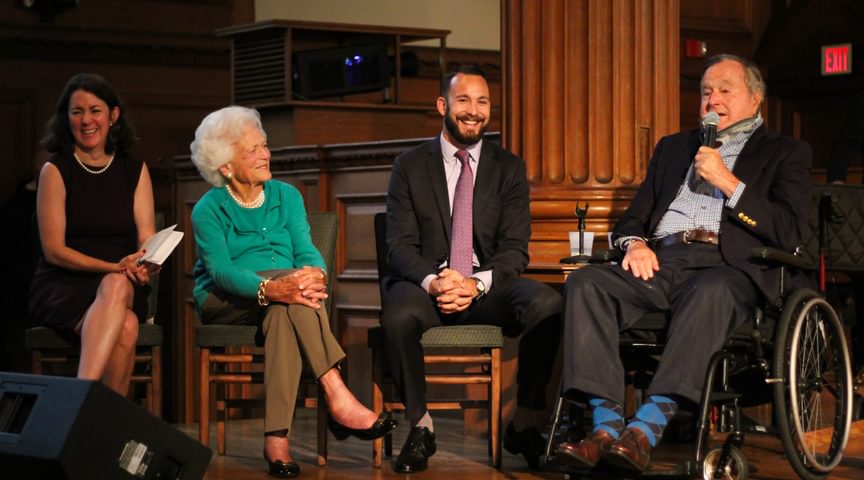
Epilogue
Jean Becker, President Bush’s longtime and loyal assistant, has done an excellent job assembling thoughts, from those who knew him best, on the character of America’s 41st president. What you’ve just read is a remarkable testament to a man we all loved and respected for the grace and honor with which he served America.
Throughout history, societies have revered those leaders who demonstrate a strong sense of character. In today’s world, where instability and dysfunction seem everywhere the norm, it is even more crucial that we recognize and appreciate the principled virtues of George H. W. Bush.
President Bush–always putting the needs of the country before his own–embodied the values of integrity, loyalty and selflessness. I remember our discussion, back in 1990, about the politics involved in his agreeing to the tax increase Democrats were demanding before they would pass a budget. He said to me in the Oval Office: Dan, I have to put politics aside and do what’s in the best interest of the country.
Love of country always came first. He was a man who believed in the power of service, whether as a young pilot during World War II or as the head of a giant global alliance thwarting tyranny in the Persian Gulf. In the White House he fostered an environment of trust, respect, and humility, which not only inspired those around him but also paved the way toward a more cooperative political landscape at home and an extraordinary degree of unity across much of the globe.
In stark contrast, today’s political world is rife with self-interest and disregard for the common good. The discord and chaos that we see today stem from a deficiency of character in our leaders, an erosion of the values that once held our democracy together. Duty, Honor, Country—words boldly displayed at the Bush Library in College Station, Texas -- were the words George H. W. Bush lived by. How many of our current politicians can say they live by them too?
To reflect on the life and legacy of President Bush is to remember that true leadership is rooted in character, in the strength of one’s convictions, and in the courage to make difficult decisions for the betterment of all. I hope this book will serve as a reminder that character does indeed matter, and that it will inspire future generations of leaders to practice the kind of moral fortitude that President Bush exemplified.
He was a buoyant, optimistic man, but much tougher than his charming, casual manner made him appear. He was an excellent listener, and during meetings with foreign leaders he tended to say less than they did. Those sitting across the table from him may have thought they were in charge of the discussion, but George Bush knew what his objectives were and never let himself be pushed beyond where he wanted to go. When traveling abroad as his vice president, I came to appreciate the reputation he had built over many years. Heads of government, even if they didn’t know the president personally, knew they were dealing with a serious man with serious purposes. A man they could trust. That is certainly missing in our political culture, both domestic and international, today.
If you have a chance to visit the White House and you get to see President Bush’s portrait, you’ll notice that he’s standing near a large globe, the kind one finds in an old-fashioned gentleman’s library. There’s no doubt that the artist wanted to convey both the enormous global changes–the explosion of freedom–that took place during President Bush’s administration, and also to symbolize the extent to which George H. W. Bush was quietly responsible for so many of them.
Every modern president is called the “Leader of the Free World,” but for most of them it’s a courtesy title. One can make a good argument that “41” was the last American president who actually performed that role, day after day and year after year. However low-key his manner may have been, he led.
It was my privilege to work in close partnership with George H. W. Bush between 1989 and 1993. In my memoir of that time, Standing Firm, I wrote of him: “He went into and out of the office as absolutely the same man, and I think that says it all about the solidity of his character. He knew who he was. He didn’t need power to tell him that.”
It’s more important than ever that we remember who he was, so that we can be inspired by his example.
Dan Quayle
Vice President of the United States
1989–1993





